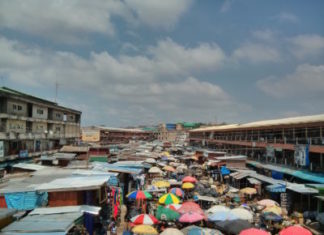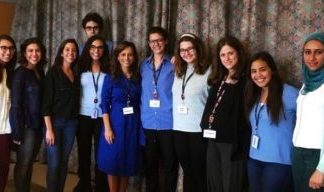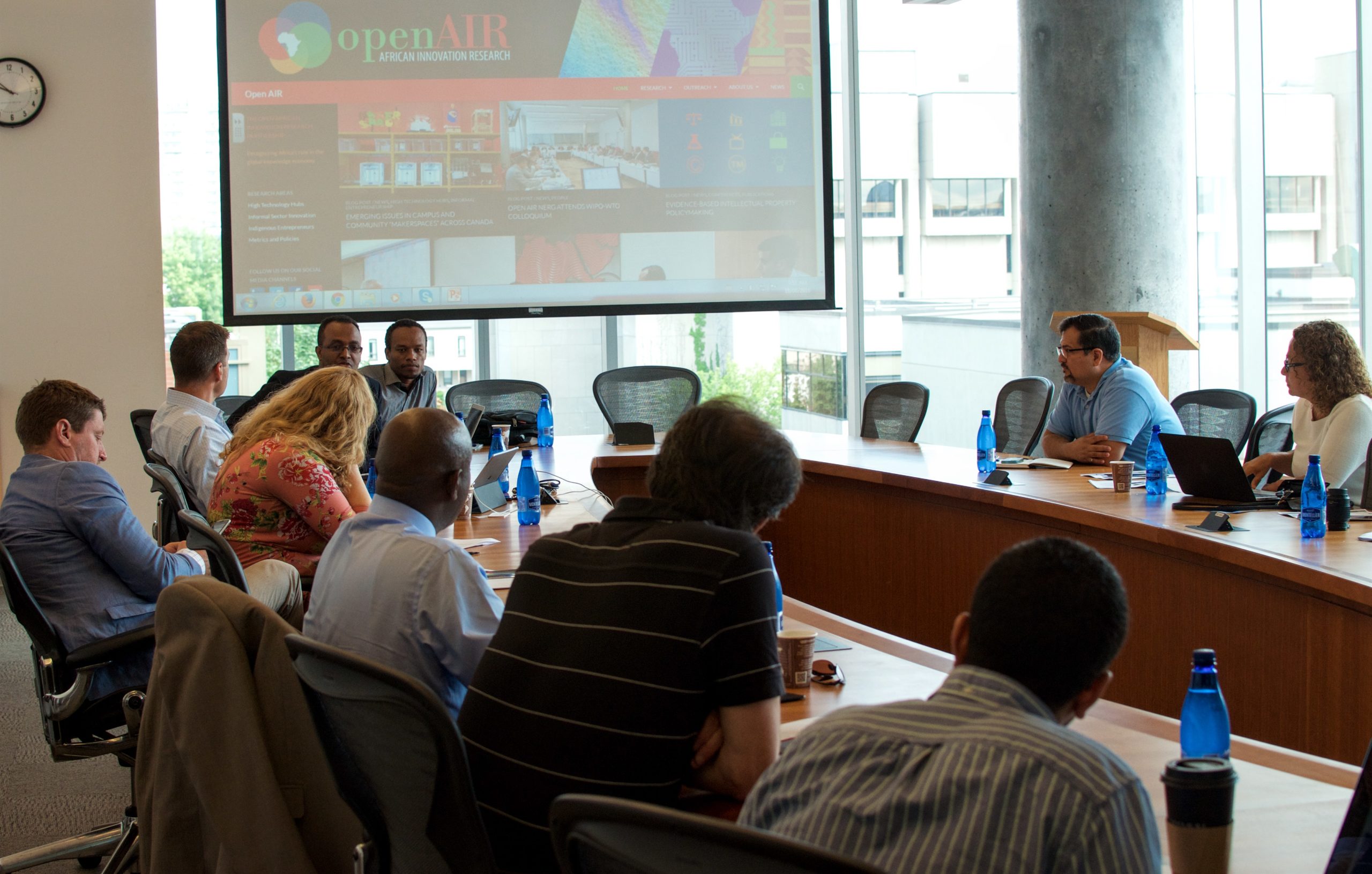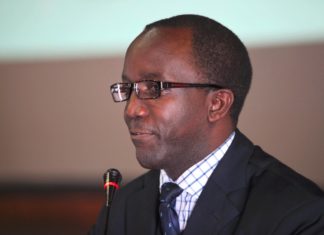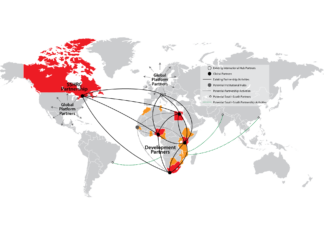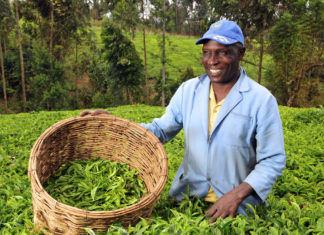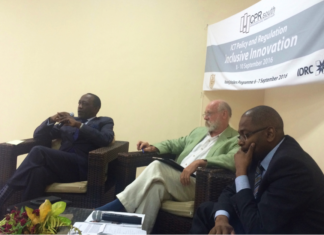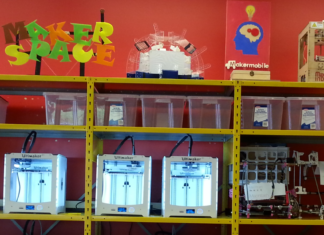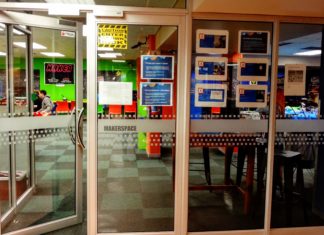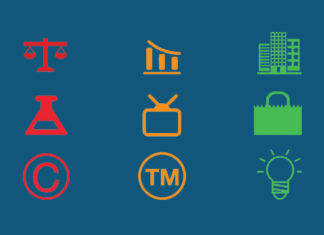Makerspaces and Creativity
Looking back at Open AIR’s ‘Making’ Innovation Happen roundtable
By Sean Boots
In mid August, Open AIR hosted a roundtable discussion on makerspaces and innovation hubs in...
Meet Open AIR’s New and Emerging Researchers Group (NERG)
First Stop, the American University in Cairo
By the AUC New and Emerging Research Group and Meika Ellis
Under the masterful guidance of our North African...
“Making” Innovation Happen: Open AIR Hosts a Successful Workshop on the...
How the world evolves in the next decade (and beyond) may be dependent upon a new-age movement re-instilling age-old skills: the maker movement. In my ongoing research into the maker movement in Canada and South Africa (see earlier posts here and here), I recently co-hosted a workshop in Ottawa with attendees from the University of Ottawa, representatives of makerspaces in the community, and those with knowledge about makerspaces elsewhere in the world.
Dr. Kakooza “Dealing with Trans-Border Quasi-Intellectual Property”
In October 2010, Yoweri Museveni, the President of Uganda, recorded a rap song titled: "Do You Want Another Rap?" as part of his re-election campaign to capture the imagination of young voters. The song was a huge success and may have played a part in his reelection. When Museveni applied for a copyright registration of the song, however, members of the Ankole community filed an objection stating that the song was derived from Ankole folklore. While the Registrar of Copyrights in Uganda eventually allowed Museveni's copyright application for registration, this case triggered Dr. Anthony Conrad K. Kakooza's interest in the area of traditional cultural expressions (TCEs) and whether TCEs should be recognized within the domain of intellectual property (IP) law.
Les défis d’étendre Open AIR dans des pays africains francophones
Le travail panafricain comprend plusieurs défis, entre autre la grandeur du continent, sa diversité, les différences juridiques, et la complexité des langues. Les défis sont particulièrement marqués pour l’innovation africaine. Il y a deux organismes régionaux dans le domaine de la propriété intellectuelle, en plus de l’Organisation mondiale de la propriété intellectuelle, ce qui souligne la diversité et les divisions linguistiques et régionales. Pour Open AIR, un réseau de recherche qui travaille dans de différents domaines de l’innovation et la propriété intellectuelle, on rencontre plusieurs défis à cause de cette diversité.
Ownership of Open Data (GODAN Summit 2016)
Open agricultural and nutritional data can play a vital role in addressing global challenges of food insecurity, health crises, climate change, and poverty.
Inclusive Innovation: Lessons from Africa for the World’s ICT Policymakers
Information communication technologies (ICT) can play a crucial role in promoting development, making societies more just, equitable, and inclusive of marginalized communities. To see how, some of the brightest young researchers from the “global South” met with established field leaders at the IDRC and COSTECH-sponsored 2016 CPRsouth conference in Zanzibar.
Emerging issues in campus and community “makerspaces” across Canada
Makerspaces are places where innovators gather together to develop new ideas, technologies and entrepreneurial opportunities. The concept of sharing not only space but also tools and equipment is gaining popularity in many countries. Canada is home to several makerspaces ranging from hackerspaces, to fab labs, to informal studio spaces where people can create, invent, and learn. Some are run for profit, some are non-profit, and some are run by individuals or larger institutions.
Innovation, Makerspaces, and the Future: A Lesson from the University of...
Creativity is a key ingredient in innovation, and the University of Pretoria’s (UP) makerspace screams it from the moment one arrives; the walls are brightly painted orange and green, there are several large tables surrounded by equally bright chairs, and along the back and side walls lay computers, makerbot 3D printers, and, of course, a coffee machine. Currently, UP is the only South African university with a ‘formal’ makerspace, although many, including the University of Cape Town and Rhodes University, are working to establish their own official makerspaces.
Evidence-based Intellectual Property Policymaking
The intellectual property system is a crucial part of economic policymaking worldwide. It affects matters of profound importance, including health, education, nutrition, culture, science, technology and innovation policy. One might assume, therefore, that the global governance of intellectual property rights rests on a solid foundation of evidence. Think again. For over a century, intellectual property policy has been based largely on theoretical assumptions and political lobbying.

